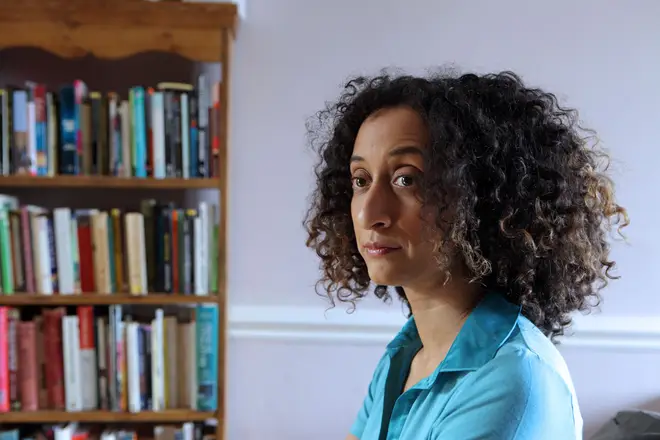
Tom Swarbrick 4pm - 6pm
9 June 2022, 10:35 | Updated: 9 June 2022, 10:37

People from disadvantaged backgrounds should take ‘smaller steps’ before aiming for Oxbridge, the Government’s new social mobility tsar will say in a speech later.
Katharine Birbalsingh is to argue that there is too much focus on poorer people getting into top universities and elite jobs.
In her inaugural speech as chairwoman of the Social Mobility Commission she will argue that the UK needs a radical shift in how it views social mobility.
She is expected to say that more attention should be given to stories of social mobility where there is less of a stark rags-to-riches ascent - such as someone whose parents are long-term unemployed getting a job, or the daughter of a care worker becoming a primary school teacher.
Read more: Right-to-buy revolution but Gove can't say how people on benefits can afford a house
Read more: Raise legal age for smoking by one year every year, review recommends
She will also discuss her support for the Government's Levelling Up agenda and how she wants to create more opportunities in the regions so that young people do not feel compelled to come to London or the South East to get a good job.
"We want to move away from the notion that social mobility should just be about the 'long' upward mobility from the bottom to the top - the person who is born into a family in social housing and becomes a banker or CEO," Ms Birbalsingh, who is also headteacher of Michaela School in London, is expected to say.
"We want to promote a broader view of social mobility, for a wider range of people, who want to improve their lives, sometimes in smaller steps," she will add.
"This means looking at how to improve opportunities for those at the bottom - not just by making elite pathways for the few - but by thinking about those who would otherwise be left behind."
Speaking at an event hosted by Policy Exchange, she will add that there is no "one size fits all model of social mobility".
"If a child of parents who were long-term unemployed, or who never worked, gets a good job in their local area, isn't that a success worth celebrating?
"Would we really say that it doesn't count as social mobility because they are not a doctor or lawyer?" she will ask.
Ms Birbalsingh and Alun Francis, her deputy, will argue that the widening of access to university has not always helped social mobility while the 50% of pupils who do not go on to higher education have suffered from a lack of public attention.
"What can we do for those young people and adults who have not followed the higher education pathway but still need a route to high skills and good occupational opportunities?" she will ask.
"And what more should be done about those at the very bottom - particularly those with low levels of basic literacy and numeracy - who cannot therefore take advantage of higher learning and are unable to access higher paid work?"
Ms Birbalsingh will argue that social mobility is not getting worse and that the picture is more "complex", with the latest analysis from the Social Mobility Commission (SMC) revealing that occupational mobility has been stable or improving slightly for decades, although there is less consensus on other areas such as income and housing, which the SMC intends to explore next year.
Ms Birbalsingh, who set up the high-achieving Michaela Community School in Brent, was appointed as the chair of the commission in 2021 and is known for making controversial comments.
In April, she was urged to apologise for telling a Government committee that girls did not take up A-level physics because they disliked "hard maths", and she has championed strict approaches to discipline such as silent corridors in schools and a campaign against mobile phones for toddlers.
The SMC State of the Nation 2022 report will be published later in June and will set out a framework to revise how social mobility has traditionally been measured. A new social mobility index will track social mobility by occupation, income and other outcomes across the UK.
"It means being clearer about the instances where mobility is working well - and being clearer about the various factors which help make this happen," Ms Birbalsingh will say.
She intends to set out priorities such as education, employment, enterprise and the economy as part of the SMC's work.
"We passionately believe that with a sharper lens, which really spots where the problems lie, we can find out what works and start making a difference," she will say.
"We want to champion a fresh approach which sees social mobility as the process of enabling everyone to find and apply their talents in ways that they enjoy and gives them purpose, and for our wider society and economy," she is expected to say.